
EMPIRICAL SOFTWARE ENGINEERING
metrics 2024
Empowering the software engineering community with data-driven discoveries.
Introduction
Empirical Software Engineering is a leading journal published by Springer, dedicated to advancing the science and practice of software engineering through empirical research. With an impressive impact factor in the Q1 quartile of the Software category and a Scopus ranking of #76 out of 407 journals, it occupies a prominent position within the field, attracting high-quality submissions from around the globe. Since its inception in 1996, the journal has provided a vital platform for disseminating critical findings that drive the evolution of software development methodologies and practices. While it is not an open-access journal, its rigorous peer-review process ensures that only the most impactful research reaches its readership, making it an essential resource for researchers, professionals, and students looking to stay at the forefront of software engineering innovations. Based in the Netherlands at Van Godewijckstraat 30, 3311 GZ Dordrecht, Empirical Software Engineering continues to set the standard for quality and significance in empirical studies of software systems and processes.
Metrics 2024
 1.50
1.50 3.50
3.50 4.50
4.50 93
93Metrics History
Rank 2024
Scopus
IF (Web Of Science)
JCI (Web Of Science)
Quartile History
Similar Journals
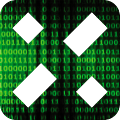
SoftwareX
Championing Cutting-Edge Methodologies in SoftwareSoftwareX is an innovative open-access journal published by Elsevier that has been championing advancements in the fields of Computer Science and Software since its inception in 2015. With a focus on presenting high-quality research, SoftwareX aims to foster collaboration and knowledge exchange among researchers and practitioners, advancing the way software and tools are developed and disseminated within the community. This journal operates under a flexible access model, allowing broad visibility and accessibility to its diverse readership. Positioned in the Q2 and Q3 quartiles of the Scopus ranking system within the domains of Computer Science Applications and Software respectively, SoftwareX stands as an influential platform for sharing cutting-edge methodologies and innovations. The journal's aim is not only to serve as a repository of knowledge but also to embolden practitioners and scholars alike to engage with and implement findings that can accelerate progress within the realms of software engineering and application. Situated in Amsterdam, Netherlands, SoftwareX has embraced an international reach, welcoming submissions that address complex challenges through novel software solutions.

Innovations in Systems and Software Engineering
Pioneering Insights for Evolving Software ChallengesInnovations in Systems and Software Engineering, published by Springer London Ltd, is a highly relevant journal dedicated to advancing the field of software engineering and systems innovation. With an ISSN of 1614-5046 and E-ISSN 1614-5054, this journal serves as a key platform for researchers and practitioners to share their insights, cutting-edge research, and developments from 2005 to 2024. Positioned in the Q3 category for software within the 2023 metrics and ranked #219 out of 407 in Scopus, the journal highlights its commitment to addressing the evolving challenges and opportunities in software systems. Although not open access, it maintains a rigorous peer-review process to ensure the dissemination of quality research. As the field continues to grow in complexity, Innovations in Systems and Software Engineering is vital for fostering collaboration and innovation among professionals, students, and researchers aiming to shape the future of software engineering.
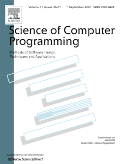
SCIENCE OF COMPUTER PROGRAMMING
Fostering Collaboration for a Dynamic Technological LandscapeScience of Computer Programming, published by Elsevier, is a leading journal dedicated to advancing knowledge in the fields of computer programming, computational theory, and software development. With a focus on interdisciplinary research that spans computational methodologies, information systems, and simulation modeling, this journal plays a vital role in disseminating innovative findings and fostering collaboration among experts in these dynamic areas. With a respectable impact factor and ranked in various Scopus Categories such as computational theory (Q3) and information systems (Q2), it provides a platform for high-quality scholarly articles that push the boundaries of programming science. Although currently not open access, the journal offers invaluable insights for researchers, professionals, and students alike, ensuring they are equipped with the latest advancements and methodologies to thrive in an ever-evolving technological landscape. The journal covers research from its convergence starting in 1981 and continues to welcome groundbreaking contributions as it looks forward to an exciting future through 2025 and beyond.

e-Informatica Software Engineering Journal
Pioneering insights in the realm of software engineering.e-Informatica Software Engineering Journal, published by WROCLAW UNIVERSITY OF TECHNOLOGY, FACULTY OF COMPUTER SCIENCE & MANAGEMENT, is a premier open access journal dedicated to disseminating high-quality research in the field of software engineering. Since its inception in 2007, this journal has played a vital role in advancing knowledge and understanding within the software engineering community. With an ISSN of 1897-7979 and an E-ISSN of 2084-4840, it is recognized for its contributions, achieving a notable Q3 ranking in the Software category for 2023, reflecting its commitment to publish impactful research. The journal covers a wide array of topics that shape the current landscape of software engineering, appealing to researchers, professionals, and students alike. Moreover, it maintains a robust presence in academic databases, ranked #278 out of 407 in Computer Science - Software by Scopus, placing it in the 31st percentile. The journal's commitment to open access ensures that all published articles are freely available to promote wider dissemination and engagement with the scholarly community, paving the way for innovative developments and collaborative research in the field. If you're aiming to contribute to or stay updated with seminal research in software engineering, e-Informatica is your gateway to groundbreaking findings.

Automated Software Engineering
Charting the Course for Automated Software SolutionsAutomated Software Engineering is a premier journal dedicated to advancing the field of software engineering through the exploration of innovative methodologies, tools, and applications. Published by Springer since its inception in 1994, this journal has established itself as a vital resource for researchers, industry professionals, and students alike, providing insights into the latest trends and technological advancements. With an impressive impact factor and currently ranked in the Q2 quartile of the Software category, it is recognized for its contribution to the discipline. The journal covers a broad scope of topics including automation in software development, empirical studies, and theoretical advancements, fostering discussions that bridge academia and industry. As we look forward to converging towards the year 2024, the journal continues to invite high-quality submissions that challenge existing paradigms and pave the way for future innovations in software engineering.
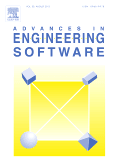
ADVANCES IN ENGINEERING SOFTWARE
Innovating Solutions for Engineering Challenges.ADVANCES IN ENGINEERING SOFTWARE, published by Elsevier Science Ltd, stands at the forefront of interdisciplinary research in the realms of engineering and software development. With an impressive impact factor reflected in its Q1 and Q2 rankings in the Engineering (Miscellaneous) and Software categories, respectively, this journal serves as an essential platform for researchers and practitioners alike to disseminate innovative findings and methodologies from 1982 to the present. Strategically positioned within the United Kingdom, it engages scholars, professionals, and students by publishing high-quality articles that emphasize advancements in software applications related to engineering challenges. Although it does not currently offer open access, the journal remains highly regarded within the academic community, consistently attracting impactful research and maintaining a commendable Scopus ranking within the top tiers of both general engineering and software disciplines. Explore the latest contributions to enhance your knowledge and stay updated on trailblazing developments in engineering software.
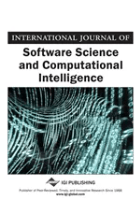
International Journal of Software Science and Computational Intelligence-IJSSCI
Fostering Innovation in Computational IntelligenceInternational Journal of Software Science and Computational Intelligence (IJSSCI) is a prominent academic journal published by IGI Global, dedicated to advancing the fields of software science and computational intelligence. With its ISSN 1942-9045 and E-ISSN 1942-9037, IJSSCI offers a platform for researchers, practitioners, and students to disseminate innovative research findings, theoretical advancements, and practical applications in areas such as algorithm development, machine learning, and software engineering. Although the journal currently does not operate under an open access model, its rigorous peer-review process ensures high-quality publications that contribute significantly to the academic discourse. Based in Hershey, PA, IJSSCI is recognized for its commitment to fostering collaboration among professionals in the technology and computer science fields, making it an essential resource for those looking to stay at the forefront of software science advancements.
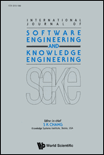
INTERNATIONAL JOURNAL OF SOFTWARE ENGINEERING AND KNOWLEDGE ENGINEERING
Advancing Software and Knowledge FrontiersThe INTERNATIONAL JOURNAL OF SOFTWARE ENGINEERING AND KNOWLEDGE ENGINEERING, published by WORLD SCIENTIFIC PUBL CO PTE LTD in Singapore, is a pivotal platform for disseminating cutting-edge research in the fields of software engineering and knowledge systems. With an ISSN of 0218-1940 and an E-ISSN of 1793-6403, this journal has been a reliable resource for scholars and practitioners since its inception in 1996. The journal is indexed across multiple prestigious databases, reflecting its relevance with a Category Quartile ranking of Q3 in both Computer Graphics and Computer Networks for 2023, and it maintains a steady trajectory of growth and scholarly contribution. Although not an Open Access journal, it is accessible through various academic institutions and libraries, ensuring researchers can engage with high-quality, peer-reviewed articles that explore advancements, theoretical developments, and practical applications in software and knowledge engineering. As it converges towards its end year of 2024, this journal continues to foster innovation and knowledge exchange, making it an essential resource for anyone invested in these dynamic fields.
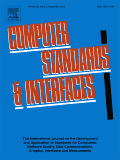
COMPUTER STANDARDS & INTERFACES
Fostering Knowledge and Best Practices in Technology Standards.COMPUTER STANDARDS & INTERFACES is a prestigious journal published by Elsevier, dedicated to the intersection of technology, law, and standards in computing. With an impressive impact factor and categorized in the Q1 quartile across several relevant fields, including Computer Science Applications, Hardware and Architecture, and Software, this journal has established itself as a critical resource for researchers and professionals alike. Covering a comprehensive range of topics over its converged years from 1986 to 2025, it provides rigorous peer-reviewed articles and vital insights into the evolving landscape of computer standards. The journal's Scopus rankings affirm its significance with top percentiles in multiple categories, including a remarkable 12th rank in Social Sciences and Law. COMPUTER STANDARDS & INTERFACES welcomes contributions that push the boundaries of knowledge and foster discussions on best practices and innovations, making it an invaluable platform for students and seasoned researchers passionate about advancing the field.
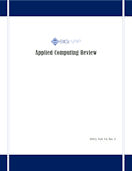
Applied Computing Review
Transforming Theory into Practice for Tomorrow's SolutionsApplied Computing Review is a prominent academic journal published by the Association for Computing Machinery (ACM), an esteemed organization known for advancing the computing profession. Focusing on the intersection of practical applications and theoretical foundations, this journal serves as a vital platform for disseminating research in the field of applied computing, facilitating knowledge sharing among researchers, professionals, and students alike. With an ISSN of 1559-6915, the journal encompasses a wide array of topics including software engineering, data analytics, and application development, addressing current trends and challenges in the industry. Although it does not offer open access, its rigorous peer-review process ensures high-quality publications that significantly contribute to the discipline. Positioned within a competitive landscape, Applied Computing Review is dedicated to fostering innovation and providing insightful perspectives that inspire further research, thereby solidifying its importance in the field of applied computing.